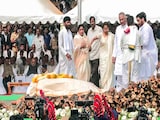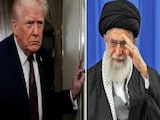Diwali, also known as Deepavali, is one of the most popular Hindu festivals celebrated with great pomp and grandeur across India as well as several parts of the world. The word "Deepavali" consists of two words. "Deep" means light and "vali" means "a row". Thereby, "Deepavali" means "a row of lights".
Popular as the "Festival of Lights", Deepavali signifies the victory of light over darkness, good over evil, knowledge over ignorance, and hope over despair.
The country comes alive with the chiming of bells in temples and homes, the sparkle of oil lamps and fairy lights. People decorate homes with flower garlands and elaborate rangoli patterns.
Decorative lights and diyas (oil lamps) form the main part of the festivities. Lamps and lanterns are lit to remove darkness and bring in light and positivity.
Diwali mainly occurs during late October or early November. It is important to know that Deepavali falls on the 15th day of the Hindu month of Kartik. The exact date of Deepavali, hence, varies every year.
The festival has its origins in ancient India and there are many stories behind the celebration of Diwali.
During Deepavali, worshippers pray to Lakshmi, the goddess of wealth and Ganesha, the god of good fortune. Many people believe that Diwali is the occasion of Lord Vishnu marrying the goddess of wealth, Lakshmi. People in West Bengal worship Goddess Kali on this day.
Ancient Hindu tradition commemorates Deepavali as the return of Lord Rama, his wife Sita and brother Lakshman to Ayodhya, ending a fourteen-year long exile. Overjoyed, his subjects lit the entire kingdom with earthen diyas and burst crackers.
It is usually a four-day-long festival, and each day has its own significance, especially as Diwali in India is celebrated in many forms.
The first day known as Naraka Chaturdasi, commemorates the vanquishing of Naraka, the demon, by Lord Krishna.
The second day of Diwali is Amavasya, marking the worship of Goddess Lakshmi.
The third day of Diwali is Karika Shudda Padyami, when Bali steps out of hell and rules the earth.
The fourth day is Yama Dvitiya, popularly known as Bhai Dooj. It is on this day that sisters invite brothers to their homes.
So, do have a very Happy Diwali this year in 2020!















